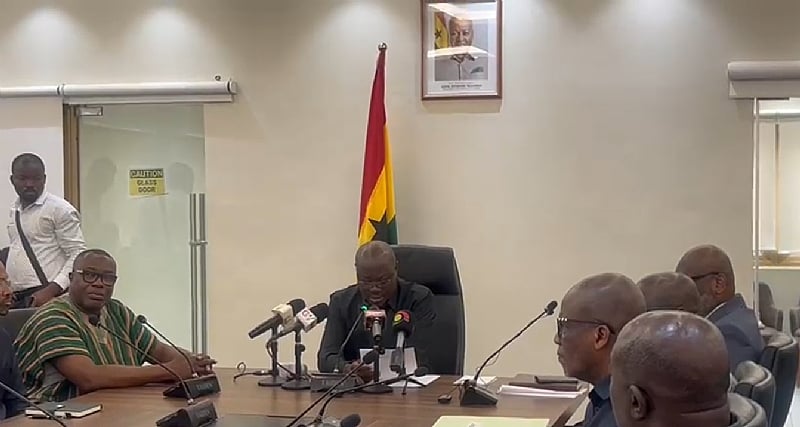Ghana’s cocoa industry, a cornerstone of the nation’s economy and a source of livelihood for countless farmers, stands at a crossroads regarding its financing model. The Mahama administration has recently reiterated its commitment to utilizing syndicated loans for the upcoming 2025/2026 cocoa season, maintaining a long-standing practice of securing funds from international banks to pre-finance cocoa bean purchases. This decision, while providing immediate financial stability and ensuring the continued flow of resources to farmers, comes amidst increasing calls for a more sustainable and resilient financing structure for the sector. The government acknowledges the need for exploring alternative financing mechanisms but emphasizes the current necessity and proven reliability of the syndicated loan system. This approach allows for predictable funding at the beginning of each season, enabling the smooth purchase of cocoa beans and supporting the livelihoods of tens of thousands of cocoa farmers across the country.
The continued reliance on syndicated loans represents a pragmatic approach in the face of complex financial realities. While exploring long-term solutions, the government seeks to maintain stability within the cocoa sector, avoiding disruptions that could negatively impact farmers and the broader economy. This strategy allows for a measured transition, providing time to develop and implement more sustainable financing models without jeopardizing the immediate needs of the industry. Furthermore, the familiarity and established processes associated with syndicated loans offer a degree of predictability and efficiency, factors that are crucial in managing a sector as vital as cocoa. The government’s commitment to this approach underscores its dedication to supporting cocoa farmers and ensuring the continued success of Ghana’s cocoa industry.
The decision to maintain the existing financing model comes on the heels of a significant increase in the producer price of cocoa, a move designed to incentivize production and improve the livelihoods of cocoa farmers. The price hike, from US$3,100 to US$5,040 per tonne, represents a substantial 62.58 percent increase, one of the largest single-season jumps in recent years. This decisive action signals the government’s commitment to supporting cocoa farmers and recognizing their crucial role in the nation’s economy. By increasing the price paid for cocoa beans, the government aims to boost farmer morale, encourage increased production, and ultimately strengthen Ghana’s position as a leading global cocoa producer. This move reflects a broader strategy to enhance agricultural value chains and ensure that farmers receive a fair share of the returns from global commodity markets.
The confluence of maintaining the existing financing model while significantly increasing the producer price underscores the government’s balancing act between immediate needs and long-term sustainability. On the one hand, the continued reliance on syndicated loans ensures the availability of necessary funds to purchase cocoa beans at the new, higher price, demonstrating a commitment to supporting farmers in the short term. On the other hand, the price increase itself is a strategic investment in the future of the cocoa sector, aimed at stimulating production and strengthening the overall industry. This dual approach reflects a nuanced understanding of the challenges and opportunities within the cocoa sector, recognizing the need for both immediate support and long-term strategic planning.
The government’s approach represents a careful navigation of complex financial terrain, balancing the need for immediate stability with the pursuit of long-term sustainability. The decision to maintain the syndicated loan model for the 2025/2026 season allows for a continued flow of funds to the cocoa sector, ensuring the smooth purchase of cocoa beans and supporting the livelihoods of farmers. Simultaneously, the government’s engagement with COCOBOD leadership signals a commitment to exploring and developing more sustainable financing alternatives. This ongoing dialogue is crucial for developing a more resilient and adaptable financing structure for the future, one that can withstand external shocks and ensure the long-term viability of Ghana’s cocoa industry.
Ultimately, the government’s strategy reflects a pragmatic approach to managing the complexities of the cocoa sector. By maintaining the existing financing model while actively exploring alternatives, the government seeks to provide both immediate support and long-term stability. The significant increase in the producer price reinforces this commitment, demonstrating a dedication to improving the livelihoods of cocoa farmers and strengthening the overall industry. This multifaceted approach underlines the importance of the cocoa sector to Ghana’s economy and the government’s commitment to ensuring its continued success. The ongoing dialogue with COCOBOD leadership, focused on developing sustainable financing strategies, will be crucial in shaping the future of the industry and ensuring its resilience in the face of evolving global economic challenges.


